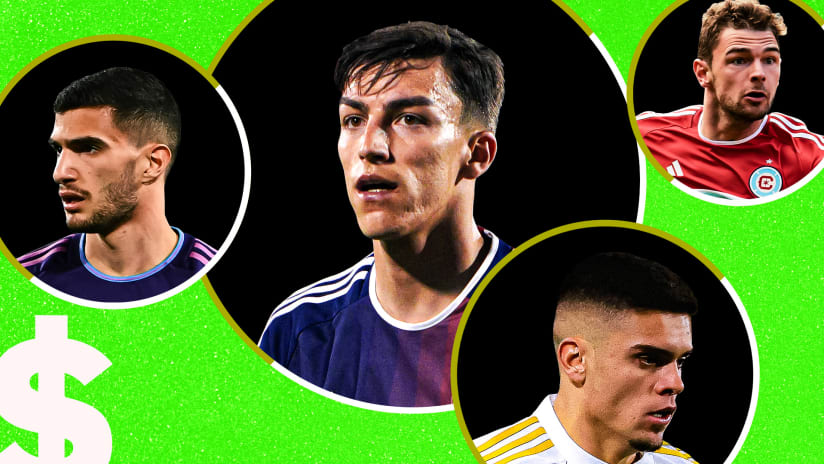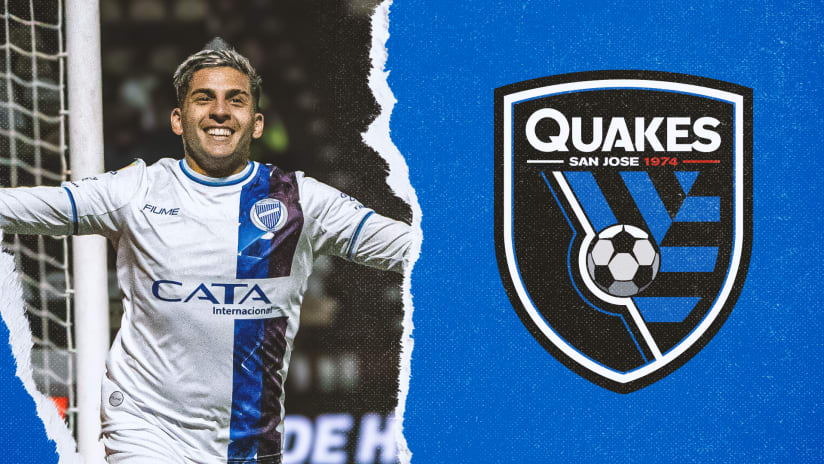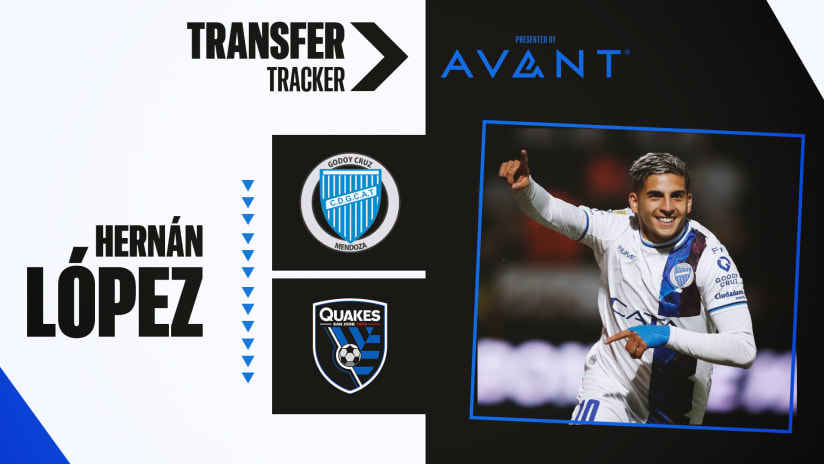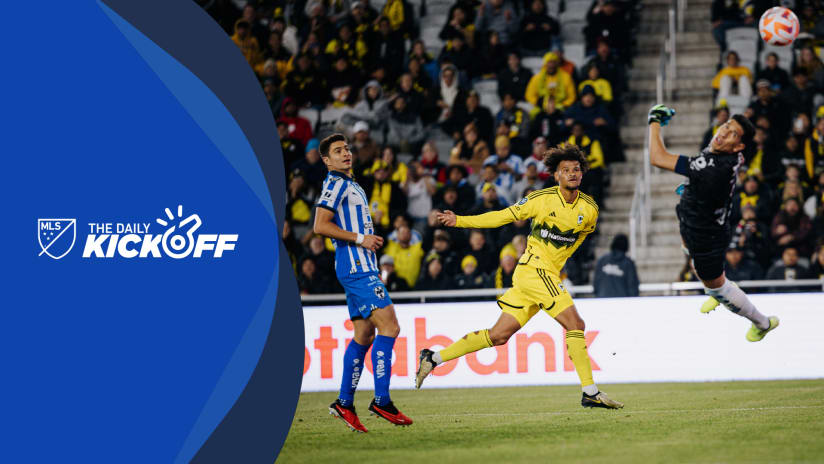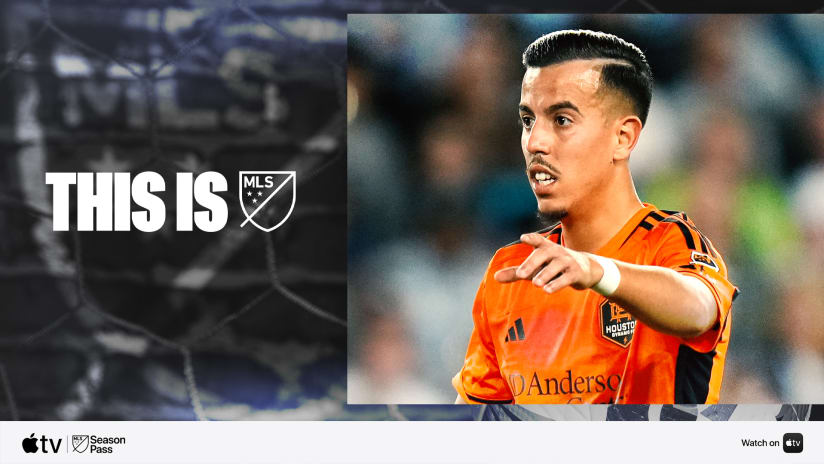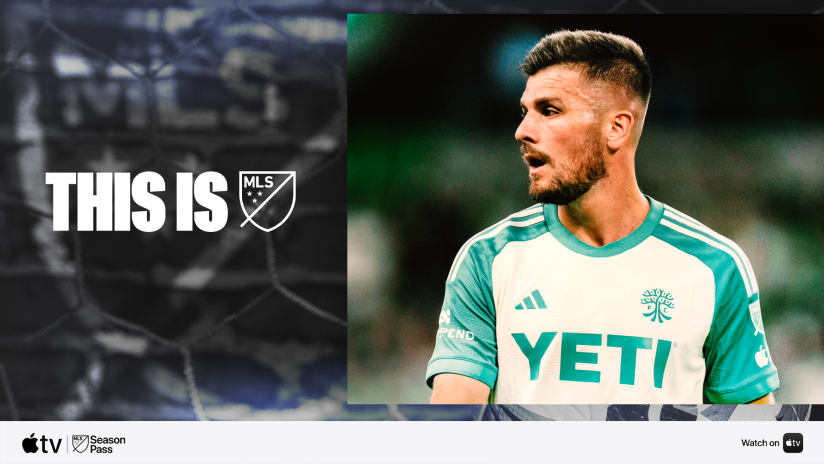The ball comes whizzing by off the raised turf in the Meadowlands parking lot past a few sand piles and into the brush. For a moment, you practically expect to see Bob Bradley chase the ball down during a break in his team's training session. And why not? He seems to be doing everything else on this particular morning.
There can't be a more hands-on coach in Major League Soccer than the MetroStars boss. One moment he's warming up his side, the next he's laying out cones and, on this day, a jumping ladder. It all leads up to functional training, which he monitors from within the exercise wearing a green bib. During this time, he never stops moving or instructing or encouraging or demanding high energy.
For a coach that is known for his stoic poses and almost sullen looks on the sideline during matches, as well as his low-key interview style in the press room afterwards, Bradley appears to be an entirely different person behind the scenes when he's in action. His voice booms, his teaching is demonstrative, his energy level is on par with any coach in America, whether it's Jon Gruden or Rick Pitino or Bill Cowher.
His style seems infectious, especially with his current group of players whose average age is that of a recent college graduate.
"He's demanding," said striker John Wolyniec, who played for Bradley with the Chicago Fire as well. "But at the same time, he's as demanding of himself. He works harder than anyone, on and off the field, which earns everyone's respect."
Whether it's the countless minutes he logs on his exercise bike during a given week that's kept his fitness level at a rate as high, if not higher, than most of his players, or the extra hours of game film he's been known to watch, Bradley is always looking to better himself and his team. Combined with a knowledge of the game that has been shaped over the years by mentors like Manny Schellscheidt of Seton Hall and peers such as U.S. national team manager Bruce Arena, Bradley has blossomed into a coach who many people believe will take over for Arena after the 2006 World Cup, and is viewed as the best at what he does in Major League Soccer.
"He's a good example of someone you'd like to model yourself after, not just as a coach but as a person," said David Kammarman, who joined Bradley's staff as an assistant earlier this year. "His work ethic, drive and commitment are second-to-none. There's really a lot to learn from him."
Bradley's MetroStars side has seemingly taken heed to his teachings, currently sitting in first place in the Eastern Conference with a 9-6-5 record (32 points) despite being the youngest team in the league. Though his squad was in a similar position after the All-Star break last year, it's a whole different atmosphere in 2004.
"It's much different this year," said second-year striker Mike Magee. "Last year, we had ups and downs all year. The games we won last year came in the last minutes. This year, we're winning games, like the other night (3-0 against Los Angeles). We're killing teams at times, and taking it at 'em. We're not scared. It's a much better feeling. Guys are busting their backsides all the time, both in the games and in every practice.
"Veterans like Eddie Pope and Amado Guevara lead the way with that and the hard work, and it just seems to have climbed down the ladder to the younger guys. It's contagious."
Bradley echoed the thought of Magee, saying that it's just starting to resemble what he experienced at Chicago from the start in 1998 when the Fire won the MLS Cup in its first year.
"We had guys who knew how to compete there," he said. "It came out of the environment that existed from the tone set by Peter Nowak and Lubos Kubik, and trickled down to guys like Chris Armas, C.J. Brown and Jesse Marsch who could sense how it was needed. And then those guys made sure the young guys like Dema Kovalenko and DaMarcus Beasley knew that."
From the start of preseason, Bradley has seen a similar type of structure in place, which has helped up the level in play and in competitiveness in training.
"As a group, they have a better understanding of what it takes to succeed than last year's group," he says. "You can sense that stronger competitive level. And it comes out during games like the other night."
Bradley's referring to the shellacking his side put on the Los Angeles Galaxy in a battle of first-place teams on Sunday night at Giants Stadium. It marked the third time in a row that the Metros beat the Galaxy, which is quite a feat considering L.A. still has the best record (9-6-6) in all of MLS. It was a performance that proved something to Bradley.
"L.A. came in here with a harder edge, since we had beaten them back-to-back," said Bradley about a chippy match that saw a red card issued to Chris Albright for a studs-up tackle against Chris Leitch. "But we handled that aspect well. We didn't back down, but we also didn't lose our composure. It's an indication that we're a harder, more composed side. It's something we now just have to keep on top of."
Games like that have given this young group loads of confidence, says Wolyniec, who scored a beautiful goal against the Galaxy on a volley off a low cross from Cornell Glen. It's partly because everyone feels like they're a part of it since the lineup has had to change often with national team call-ups and injuries, but also because they are simply closing games and getting the results they deserve, rather than sneaking out of town with a tie or scoring a late goal to steal a win, as they did at times a year ago.
"This year," says Wolyniec, "we don't hope to win games. We expect to win games."
Marc Connolly writes for ESPN.com and several other publications. This column runs each Wednesday on MLSnet.com and Marc can be reached at marc@oakwoodsoccer.com. This story was not subject to the approval of Major League Soccer or its clubs.


